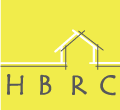Portable Ferrocement Architecture for Resilient Housing
Award: Best Paper Award (Theme 2: Case Studies and Field Applications in Ferrocement)
Lead: Centre for Housing and Building Research (HBRC)
HBRC’s research paper Portable Ferrocement Architecture: A Green Alternative for Transitional Shelter in Vulnerable Regions received the Best Paper Award at the International Conference 2025 on Art, Science & Technology of Ferrocement Construction, hosted by B.N. College of Architecture for Women, Pune, India.
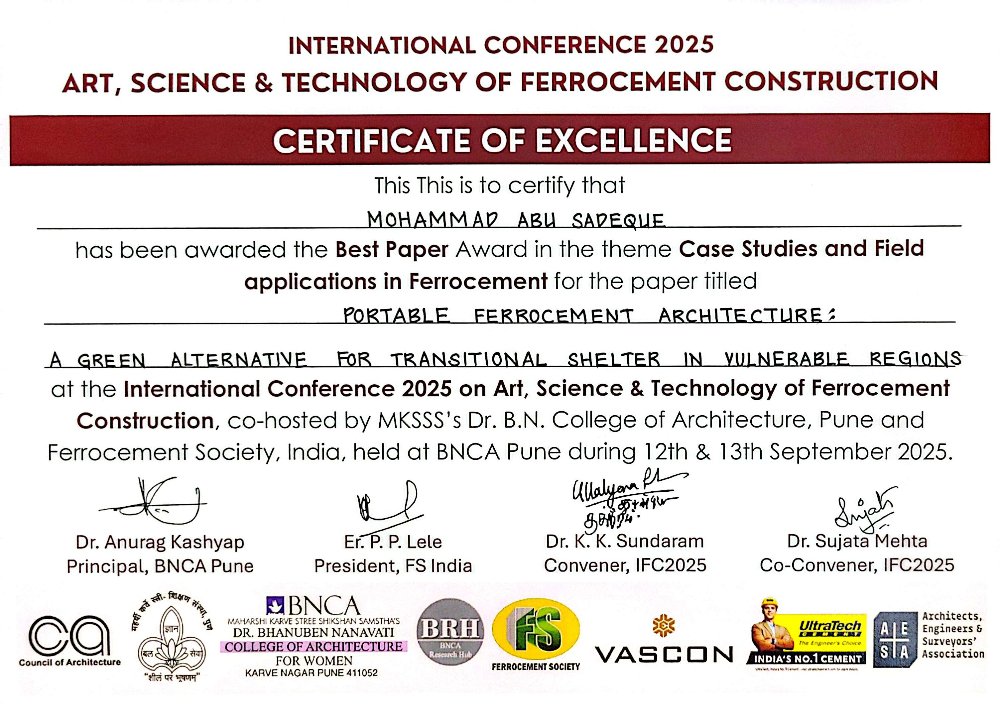
Key Highlights
- Rapid & adaptable: Prefabricated, modular ferrocement panels allow quick installation, dismantling, and reuse in disaster-affected areas.
- Climate-smart & energy-efficient: Achieves indoor cooling of 3–8°C compared to CI sheet roofing, reducing reliance on artificial cooling.
- Sustainable & affordable: Made with locally sourced riverbed sand, lowering carbon emissions while supporting artisans and communities.
- Culturally adapted: Incorporates familiar design features such as separate kitchens, sanitation, shaded verandas, and rainwater-harvesting roofs —and ensures accessibility for all.
Why It Matters
The HBRC Portable House stands as a replicable, low-carbon, and socially inclusive housing solution that meets urgent shelter needs of displaced populations while supporting global humanitarian and climate-resilient housing goals.
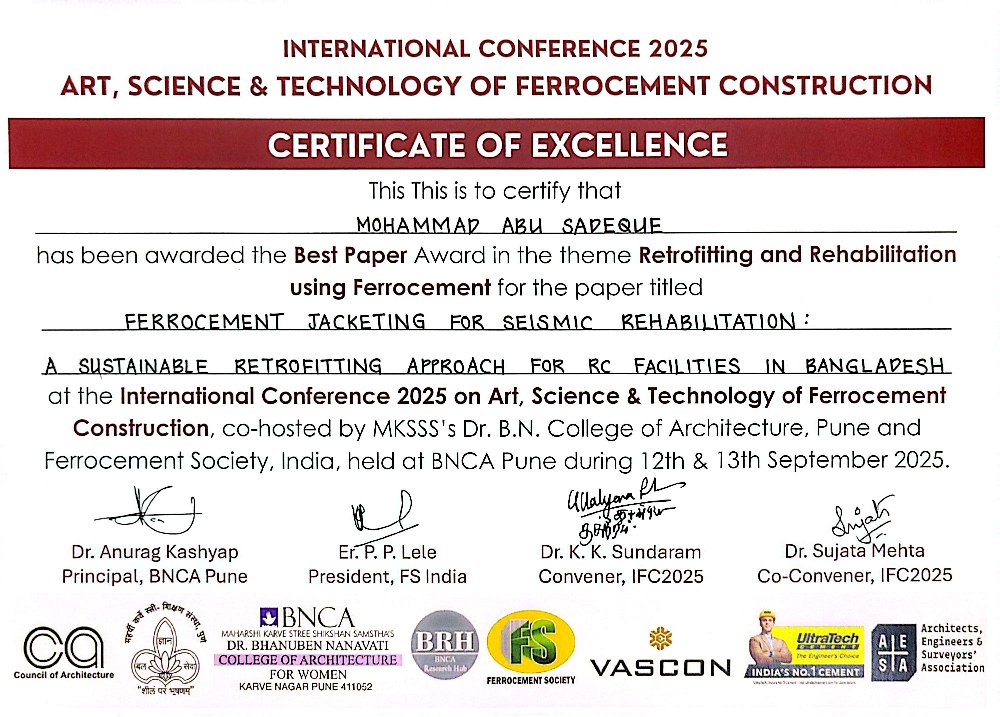
Ferrocement Jacketing for Seismic Rehabilitation
Award: Best Paper Award (Theme1: Retrofitting and Rehabilitation using Ferrocement)
Lead: Centre for Housing and Building Research (HBRC)
HBRC’s research paper Ferrocement Jacketing for Seismic Rehabilitation: A Sustainable Retrofitting Approach for RC Facilities in Bangladesh was honored with the Best Paper Award at the International Conference 2025 on Art, Science & Technology of Ferrocement Construction, hosted by B.N. College of Architecture for Women, Pune, India.
Key Highlights
- Strengthening weak structures: Assessment of RC buildings in Gazipur revealed significant deficiencies in earthquake resistance, column capacity, and footing performance.
- Innovative retrofit solution: Applied 50 mm ferrocement jacketing with wire mesh and steel bars, enhancing durability and seismic performance.
- Affordable, Effective & efficient: Enhanced durability and seismic capacity at low cost while causing minimal disruption during construction.
- Sustainable impact: Met BNBC-2020 standards and achieved low environmental footprint, confirming ferrocement as a green retrofitting option.
Why It Matters
This study demonstrates that ferrocement jacketing is a cost-effective, scalable, and environmentally sustainable method for upgrading RC structures in Bangladesh. By promoting standardized guidelines, workforce training, and structural health monitoring, HBRC is paving the way for broader adoption of this low-tech yet highly resilient retrofitting solution.
Self-Sufficient Coastal Model House in Bangladesh
Award: Energy Globe Award 2023
Lead: Centre for Housing and Building Research (HBRC)
HBRC’s Self-Sufficient Coastal Model House earned the Energy Globe Award 2023 for pioneering, climate-resilient housing in Bangladesh’s cyclone- and salinity-prone coastal belt. The prototype demonstrates a practical alternative to conventional CGI sheet and brick construction by combining low-carbon materials with passive cooling and on-site utilities.
Impact at a Glance
- Reduces 81% embodied energy vs. conventional houses
- Reduces 70% CO₂ emissions across materials and construction
- Up to 8 °C cooler indoors in summer compared to CGI-sheet houses
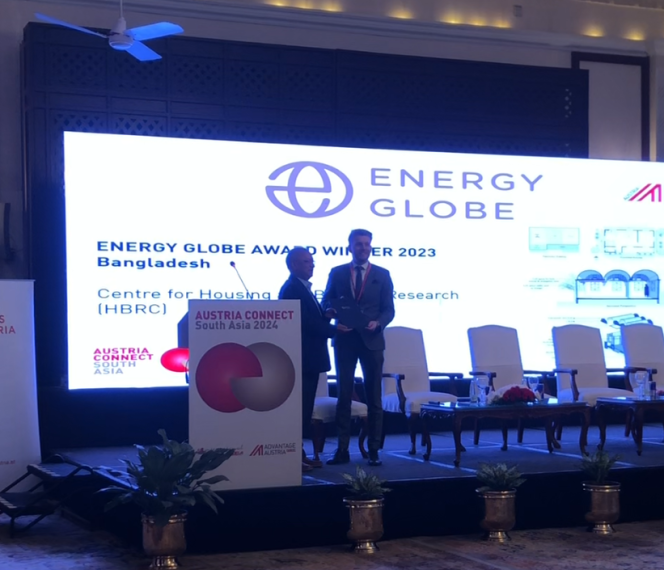
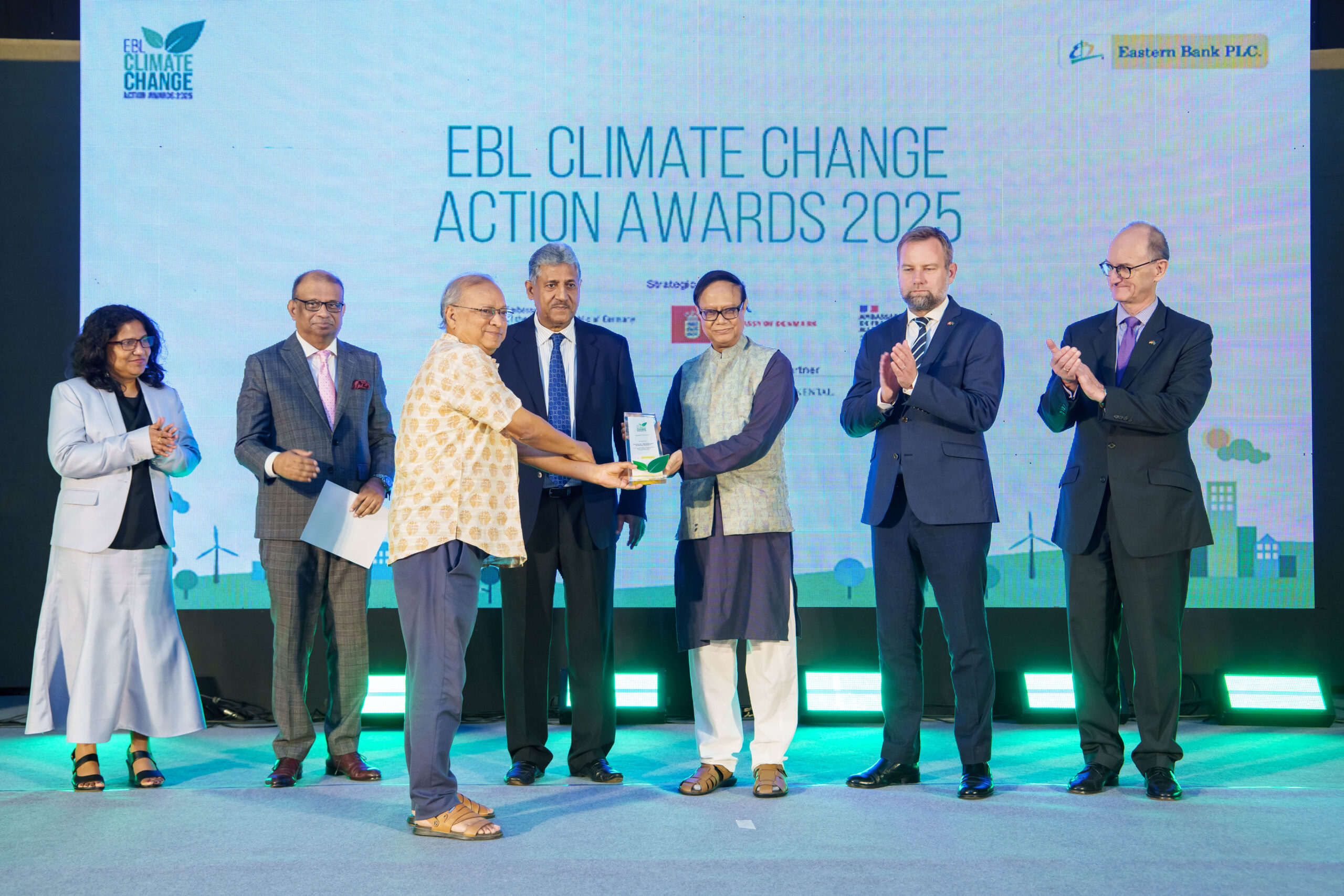
Building Resilient Homes for Bangladesh
Award: EBL Climate Change Action Awards 2025
Lead: Centre for Housing and Building Research (HBRC)
The Centre for Housing and Building Research (HBRC) has been honored with the EBL Climate Change Action Awards 2025 for its pioneering role in advancing climate-resilient and sustainable housing solutions in Bangladesh. This prestigious award highlights HBRC’s leadership in developing eco-friendly, energy-efficient, and durable construction technologies that address the country’s pressing environmental challenges.
Impact at a Glance
- Reduced greenhouse gas emissions through low-carbon construction methods
- Improved durability and safety of homes in flood- and cyclone-prone areas
- Affordable, replicable housing solutions for vulnerable communities
What Makes it Different
- Innovative materials: Application of ferrocement, energy-efficient blocks, and other eco-friendly technologies to replace high-emission conventional construction.
- Resilient design: Homes optimized to withstand cyclones, tidal surges, and other climate shocks while ensuring comfort and safety.
- Community-centered approach: Solutions tailored for affordability and replicability across rural and coastal regions.
Why It Matters
Conventional rural houses in Bangladesh are often fragile, costly to maintain, and environmentally harmful. HBRC’s initiatives provide sustainable alternatives that reduce emissions, enhance resilience, and safeguard communities most exposed to climate risks.
Contribution to the SDGs
The initiative directly supports SDG 7 (Affordable & Clean Energy), SDG 11 (Sustainable Cities & Communities), and SDG 13 (Climate Action) by advancing low-carbon, resilient housing and ensuring access to safe, sustainable living environments.
Self-Sufficient Coastal Model House in Bangladesh
Award: Energy Globe Award 2023
Lead: Centre for Housing and Building Research (HBRC)
HBRC’s Self-Sufficient Coastal Model House earned the Energy Globe Award 2023 for pioneering, climate-resilient housing in Bangladesh’s cyclone- and salinity-prone coastal belt. The prototype demonstrates a practical alternative to conventional CGI sheet and brick construction by combining low-carbon materials with passive cooling and on-site utilities.
Impact at a Glance
- Reduces 81% embodied energy vs. conventional houses
- Reduces 70% CO₂ emissions across materials and construction
- Up to 8 °C cooler indoors in summer compared to CGI-sheet houses

What Makes it Different
- Climate-ready envelope: Passive design and material choices enhance thermal comfort and durability during cyclones, tidal surges, and saline conditions.
- Local, low-impact materials: Utilizes deposited riverbed soil and avoids imported stone, lowering costs and environmental harm while easing waterway navigation constraints.
- Integrated self-sufficiency: Solar PV, rainwater harvesting, biogas, and waste management provide reliable access to electricity and safe drinking water in resource-scarce areas.
- Affordable & replicable: Optimized for rural coastal communities; the design is scalable across vulnerable regions with minimal maintenance needs.
Why It Matters
Typical rural houses in coastal Bangladesh are not designed to withstand extreme weather and often rely on high-emission materials. This HBRC model offers a resilient, cost-effective, and low-energy replacement that can be widely adopted to protect people and the environment.
Contribution to the SDGs
The initiative supports SDG 7 (Affordable & Clean Energy), SDG 11 (Sustainable Cities & Communities), and SDG 13 (Climate Action) by cutting carbon, improving resilience, and expanding access to essential services.
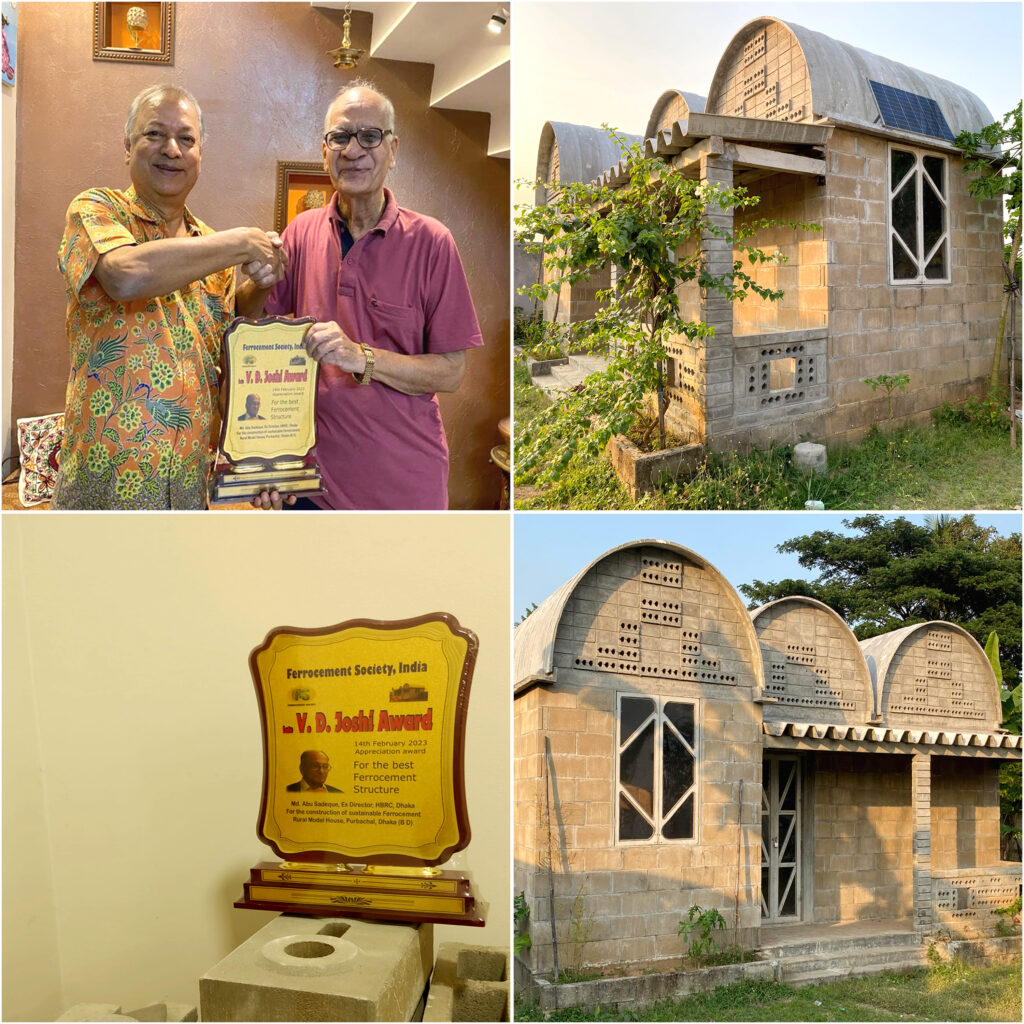
For the Best Ferrocement Structure
A pilot Project “Energy Efficient Sustainable Rural Housing Model in Bangladesh” developed by the Centre for Housing and Building Research (HBRC) received the ‘Energy Globe Award 2022’ in the category of the Earth for Sustainability on November 14, 2022 at Pan Pacific Sonargaon Hotel, Dhaka. The Austrian Ambassador Katharina Wieser presented this honor to the project’s team leader Mohammad Abu Sadeque, the organization’s Executive Director.The Innovated technologies adopted by HBRC for the model of are safe, sustainable, durable, environment friendly and affordable to most of the common people. This project also have a high potentiality, we can conclude as very high potentiality for replication.
Adoption of such environment friendly technology will facilitate to achieve sustainable development goals by 2030.
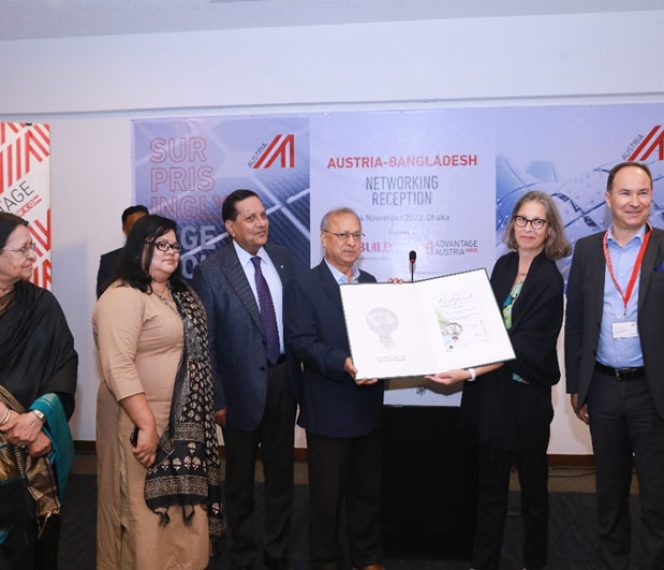
উন্নয়ন মেলা-২০১৯ এ প্রদর্শিত HBRC এর কারিগরি উপস্থাপনা সেরা সম্ভাবনাময় পরিবেশবান্ধব স্থাপনা সামগ্রী হিসেবে পুরষ্কার পাওয়ায় আমরা গর্বিত এবং HBRC কয়েকগুন শক্তি বৃদ্ধি করে দেশে কৃষিবান্ধব, পরিবেশবান্ধব, দুর্যোগ সহনীয় ও ব্যয়সাশ্রয়ী গ্রামীন আবাসনের সমাধানকল্পে উৎসাহ নিয়ে কাজ করার অঙ্গীকার ব্যাক্ত করছে। সকলের সহযোগিতা একান্ত কাম্য।

